Query any word you want.
1.VERB 动词 知道;知悉;了解 If you know a fact, a piece of information, or an answer, you have it correctly in your mind.
【语法信息】:V n
【语法信息】:V that
【语法信息】:V wh
【语法信息】:V
【语法信息】:V about n/-ing
【语法信息】:V n to-inf
【语法信息】:itbe V-ed wh
【语法信息】:itbe V-ed that
【搭配模式】:no cont
I don't know the name of the place...我不知道那个地方的名字。
I know that you led a rifle platoon during the Second World War...我知道你在二战期间率领一个步枪排。
'People like doing things for nothing.' — 'I know they do.'...“人们喜欢没事找事。”——“我知道确实是那样。”I don't know what happened to her husband...我不知道她丈夫出了什么事。'How did he meet your mother?' — 'I don't know.'...“他怎么认识你母亲的?”——“我不知道。”We all know about his early experiments in flying...我们都了解他早期的飞行试验。They looked younger than I knew them to be...他们看起来比我所知道的实际年龄显小。Radon is known to be harmful to humans in large quantities...众所周知,大量的氡会对人体造成伤害。It is not known whether the bomb was originally intended for the capital itself...尚不清楚炸弹起初的轰炸目标是否是首都。It's always been known that key figures in the government do very well for themselves.众所周知政府中的要员都很会保全自己的利益。
2.VERB 动词 熟识;认识 If you know someone, you are familiar with them because you have met them and talked to them before.
【语法信息】:V n
【搭配模式】:no cont
Gifford was a friend. I'd known him for nine years...吉福德是我的一位朋友。我和他认识9年了。
Do you two know each other?...你们俩互相认识吗?
He doesn't know anybody in London.他在伦敦谁也不认识。
3.VERB 动词 听说过;略有耳闻 If you say that you know of something, you mean that you have heard about it but you do not necessarily have a lot of information about it.
【语法信息】:V of n
【搭配模式】:no cont
We know of the incident but have no further details...我们听说过这件事,但对详情不是很清楚。
The president admitted that he did not know of any rebels having surrendered so far...总统承认据他所知迄今为止还没有反叛者投降。
I know of no one who would want to murder Albert.我没听说有人想杀艾伯特。
4.VERB 动词 了解,掌握(某一学科) If you know about a subject, you have studied it or taken an interest in it, and understand part or all of it.
【语法信息】:V about n
【语法信息】:V amount about n
【搭配模式】:no cont
Hire someone with experience, someone who knows about real estate...雇佣有经验、了解房地产业的人。
She didn't know anything about music but she liked to sing.虽然她对音乐一无所知,但却爱唱歌。
5.VERB 动词 学会,掌握(语言) If you know a language, you have learned it and can understand it.
【语法信息】:V n
【搭配模式】:no cont
It helps to know French and Creole if you want to understand some of the lyrics...如果你想读懂一些抒情诗,学点法语和克里奥尔语是有帮助的。
Rachel already knows as many words in German as she does in English...雷切尔掌握的德语词汇已经和她掌握的英语词汇一样多了。
Her new classmates knew no Latin.她的新同学不会拉丁语。
6.VERB 动词 熟悉;了解 If you know something such as a place, a work of art, or an idea, you have visited it, seen it, read it, or heard about it, and so you are familiar with it.
【语法信息】:V n
【搭配模式】:no cont
No matter how well you know Paris, it is easy to get lost...不管你对巴黎多么熟悉,也很容易迷路。
I don't know the play, I've just come to see it.我不了解这部剧,只是来看看。
7.VERB 动词 会;能 If you know how to do something, you have the necessary skills and knowledge to do it.
【语法信息】:V wh-to-inf
【搭配模式】:no cont
The health authorities now know how to deal with the disease...卫生部门现在知道如何对付这种病了。
We know what to do to make it work.我们知道如何让它起作用。
8.VERB 动词 意识到;觉察到 You can say that someone knows that something is happening when they become aware of it.
【语法信息】:V that
【语法信息】:V about n
【搭配模式】:no cont
Then I saw a gun under the hall table so I knew that something was wrong...后来我看到大厅的桌子下有一把枪,我就意识到有些不对劲儿。
The first I knew about it was when I woke up in the ambulance.当我从救护车中苏醒过来时才知道发生了什么事。
9.VERB 动词 认出;辨认出 If you know something or someone, you recognize them when you see them or hear them.
【语法信息】:V n
【搭配模式】:no cont
Would she know you if she saw you on the street?...如果她在大街上看到你,能认出你吗?
I thought I knew the voice.我觉得在哪里听过这声音。
10.VERB 动词 称为;叫做 If someone or something is known as a particular name, they are called by that name.
【语法信息】:be V-ed as n
【语法信息】:V n as n
【语法信息】:V n by n
【语法信息】:V-ed
【搭配模式】:no cont
The disease is more commonly known as Mad Cow Disease...这种疾病更通俗的名称是疯牛病。
He was born as John Birks Gillespie, but everyone knew him as Dizzy...他本名为约翰·伯克斯·吉莱斯皮,但人人都叫他“小迷糊”。
He was the only boy in the school who was known by his Christian name and not his surname.他是学校里唯一一个被称呼洗礼名而不是姓氏的男孩儿。...British Nuclear Fuels, otherwise known as BNFL.英国核料烧股份有限公司,也称BNFL。
11.VERB 动词 认为…是;把…看作是 If you know someone or something as a person or thing that has particular qualities, you consider that they have those qualities.
【语法信息】:V n as n
【语法信息】:V n for n
Lots of people know her as a very kind woman...很多人认为她是个非常善良的女人。
We know them as inaccurate and misleading property descriptions...我们认为对性状的这些描述是不准确的,且会使人产生误解。
Kemp knew him for a meticulous officer.肯普认为他是个很细心的官员。
12.VERB 动词 (因某工作或角色)认识 If you know someone as a person with a particular job or role, you are familiar with them in that job or role, rather than in any other.
【语法信息】:V n as n
Most of us know her as the woman who used to present the television news...我们大多数人认识她是因为她曾主持过电视新闻节目。
The soldiers — all of whom we knew as neighbours — stood around pointing guns at us.那些士兵——我们都视之为邻居的人——站在四周用枪指着我们。
13. See also: knowing;known;
14.PHRASE 短语 现行的;我们熟悉的;我们熟知的 If you talk about a thing or system as we know it, you are referring to the form in which it exists now and which is familiar to most people.
【搭配模式】:n PHR
He planned to end the welfare system as we know it.他计划终止现行的福利制度。
...those values of our culture that are essential to civilisation as we know it.我们文化中那些构成我们所熟悉的文明社会之根基的价值观
15.PHRASE 短语 (花时间)了解 If you get to know someone, you find out what they are like by spending time with them.
【搭配模式】:get inflects
The new neighbours were getting to know each other...新邻居之间正在互相了解。
I'd really like to see you again and get to know you better.我很愿意再次见到你并且更多地了解你。
16.PHRASE 短语 谁知道;天晓得 People use expressions such as goodness knows ,Heaven knows, and God knows when they do not know something and want to suggest that nobody could possibly know it.
【搭配模式】:PHR as reply
【STYLE标签】:INFORMAL 非正式
'Who's he?' — 'God knows.'“他是谁?”——“天晓得。”
Old Gunga spoke God knows how many languages...老贡嘎会说很多种语言,天晓得有多少种。
Heaven only knows what his mother would have said.天晓得他母亲原本会说什么。
17.CONVENTION 惯用语 (表示同意)我理解,我有同感,我知道 You say 'I know' to show that you agree with what has just been said.
'This country is so awful.' — 'I know, I know.'“这个国家太糟糕了。”——“的确是,的确是。”
18.CONVENTION 惯用语 (表示接受)我知道 You say 'I know' to show that you accept that something is true, but think that it is not very important or relevant.
'There are trains straight from Cambridge.' — 'I know, but it's no quicker.'“有直接从剑桥开出的列车。”——“我知道,但也不快。”
19.PHRASE 短语 (表示同情和理解)我理解,我知道 You use 'I know' to express sympathy and understanding towards someone.
【搭配模式】:PHR wh/that
I'm sorry, George. I know how you feel...我很遗憾,乔治。我理解你的感受。
I know what you're going through.我知道你正在经受什么样的煎熬。
20.PHRASE 短语 不知道,不认为(表示不完全同意或不认为是真的) You can use I don't know to indicate that you do not completely agree with something or do not really think that it is true.
【搭配模式】:usu PHR about n
'He should quite simply resign.' — 'I don't know about that.'“他就该辞职。”——“我不知道。”
I don't know that it's made the decision any easier.我不认为这对作出决定有丝毫帮助。
21.PHRASE 短语 我不知道你(们)怎么想(表示将表达自己想法并想知道他人的看法) You can say 'I don't know about you' to indicate that you are going to give your own opinion about something and you want to find out if someone else feels the same.
【搭配模式】:PHR but cl
I don't know about the rest of you, but I'm hungry...我不知道你们怎么样,但我是饿了。
I don't know about you, but I've had just about enough of this.我不知道你怎么想,但我已经受够了。
22.PHRASE 短语 (表示批评某人的行为)真想不到,真不知道 You use I don't know in expressions which indicate criticism of someone's behaviour. For example, if you say that you do not know how someone can do something, you mean that you cannot understand or accept them doing it.
【搭配模式】:PHR wh
【语用信息】:disapproval
I don't know how he could do this to his own daughter...真想不到他竟对自己的女儿这样。
I don't know how you can say that...真想不到你竟说那话。
I don't know what those folk think they are playing at.真不知道那些家伙在搞什么鬼。
23.PHRASE 短语 我要是知道就好了;我根本不知道 People sometimes use expressions such as I'm blessed if I know or damned if I know to emphasize the fact that they do not know something.
【搭配模式】:oft PHR as reply
【语用信息】:emphasis
【STYLE标签】:INFORMAL 非正式
'What was that all about?' — 'Damned if I know.'“那都是关于什么的?”——“我要知道就好了。”
I'm damned if I know what plans he has in that direction.我压根不知道他在那方面有什么计划。
24.PHRASE 短语 知情;(尤指)熟悉内幕,掌握内情 If you are in the know about something, especially something that is not known about or understood by many people, you have information about it.
【搭配模式】:usu v-link PHR
It was gratifying to be in the know about important people...了解重要人物的一些内幕真令人高兴。
He takes crucial decisions without consulting people in the know.他没有咨询相关知情人士就作了重要的决定。
25.CONVENTION 惯用语 (表示所说的话对方理解)你是知道的,你知道我的意思 You can use expressions such as you know what I mean and if you know what I mean to suggest that the person listening to you understands what you are trying to say, and so you do not have to explain any more.
【STYLE标签】:SPOKEN 口语
None of us stayed long. I mean, the atmosphere wasn't — well, you know what I mean...我们都没呆太久。我的意思是,气氛并不是——唔,你知道我的意思。
She was a bit stuck up, know what I mean?她有点自命不凡,你明白我的意思吧?
26.CONVENTION 惯用语 (指可能会发生好事)很难说,很难预料 You say 'You never know' or 'One never knows' to indicate that it is not definite or certain what will happen in the future, and to suggest that there is some hope that things will turn out well.
【语用信息】:vagueness
You never know, I might get lucky...很难说,我也许会交好运呢。
There might be an even bigger one — I doubt it, but you never know.可能还有个比这还要大的——我觉得有点悬,但也很难说。
27.CONVENTION 惯用语 据我所知没有 You say 'Not that I know of' when someone has asked you whether or not something is true and you think the answer is 'no' but you cannot be sure because you do not know all the facts.
【语用信息】:vagueness
'Is he married?' — 'Not that I know of.'“他结婚了吗?”——“据我所知没有。”
28.PHRASE 短语 我怎么知道;我不知道 You can say 'How was I to know?', or in British English 'I wasn't to know', to mean that you cannot be blamed or criticized for something you did, because you did not have enough information to realize that it was wrong.
【搭配模式】:oft PHR cl
How was I to know you'd return so suddenly?...我怎么知道你会这么突然就回来?
You weren't to know — in fact, I think I'm the only person who does know.你不会知道——实际上,我想我是唯一真正知道的人。
29.PHRASE 短语 (某人)知道什么,懂什么(表示其没有资格评论) You can use expressions such as What does she know? and What do they know? when you think that someone has no right to comment on a situation because they do not understand it.
【搭配模式】:oft PHR about n
【语用信息】:disapproval
Don't listen to him, what does he know?...别听他的,他知道什么?
I always felt his attitude was, 'What do you know about it?'我感觉他总是那种“你懂什么?”的态度。
30.EXCLAM 感叹语 (表示惊讶)你看怪不怪,真没想到 People sometimes say 'What do you know!' when they are very surprised about something.
【语用信息】:feelings
【STYLE标签】:INFORMAL 非正式
Well, what do you know!哎呀,真没想到!
31.CONVENTION 惯用语 (加强语气或引起注意)你要知道 You use you know to emphasize or to draw attention to what you are saying.
【语用信息】:emphasis
【STYLE标签】:SPOKEN 口语
The conditions in there are awful, you know...你要知道,那里的条件很艰苦。
You know, it does worry me.你要知道,这实在让我担心。
32.CONVENTION 惯用语 (表示不确定要说的话或考虑接着说什么)你知道 People use you know when they are uncertain about what they are saying or what they are going to say next.
【STYLE标签】:SPOKEN 口语
He's generous and, you know, very nice, very polite...他很大方而且,你知道,很友善,很有礼貌。
I thought I'd, you know, have a chat with you.我想我应该,呃,和你谈谈。
33.CONVENTION 惯用语 (表示进一步解释)你是知道的,你难道不知道 You use you know when you are trying to explain more clearly what you mean, by referring to something that the person you are talking to knows about.
【STYLE标签】:SPOKEN 口语
Wear the white dress, you know, the one with all the black embroidery.穿那件白裙,你知道的,上面有黑色刺绣的那件。
34.PHRASE 短语 (加强语气)你不知道,你都想不到 You can say 'You don't know' in order to emphasize how strongly you feel about the remark you are going to make.
【搭配模式】:PHR wh
【语用信息】:emphasis
【STYLE标签】:SPOKEN 口语
You don't know how good it is to speak to somebody from home.你不知道和家乡来的人说说话感觉有多好。
35. to know something backwards→see: backwards; to know best→see: best; to know better→see: better; to know no bounds→see: bound; to know what side your bread is buttered on→see: butter; to know something for a fact→see: fact; as far as I know→see: far; not to know the first thing about something→see: first; to know full well→see: full; to let someone know→see: let; not to know the meaning of the word→see: meaning; to know your own mind→see: mind; for reasons best known to oneself→see: reason; to know the ropes→see: rope;
--v.
1 understand, comprehend, be familiar with, grasp, beacquainted with, be versed or skilled in: Do you know anythingabout nuclear physics? I know Italian fairly well. She knows howto dance the tango.
2 recognize, identify, recall, remember,recollect: I know him from somewhere.
3 be sure or certain orpositive: I knew I was right! I just know I'm going to win thefirst prize.
4 distinguish, separate, discern, differentiate,recognize, identify: Charles doesn't know right from wrong. 5be aware or conscious or cognizant of, be informed or advisedof, have knowledge of: He knows that he cannot fire her becauseshe knows too much.
UK verb (knew, known) HAVE INFORMATION 掌握资讯 ESSENTIAL intransitive or transitive [not continuous]
to have information in your mind 知道,熟悉,了解 "Where did he go?" "I don't know." “他上哪里去了?”“我不知道。” "What does it cost?" "Ask Kate. She'll know." “这个要多少钱?”“问凯特,她知道。” She knows the name of every kid in the school. 她知道学校里每个孩子的名字。 I don't know anything about this. 我对此一无所知。 [+ question word] We don't know wh en he's arriving. 我们不知道他甚么时候到。 I don't know (= understand) wh at all the fuss is about. 我不明白为甚么要这么大惊小怪。 [+ (that)] I just knew (that) it was going to be a disaster. 我就知道这会是场灾难。 She knew (= was aware) (that) something was wrong. 她知道出错了。 [+ obj + to infinitive] Even small amounts of these substances are known to cause skin problems. 我们知道这类物质即使是一丁点也会损害皮肤。 formal The authorities know him to be (= know that he is) a cocaine dealer. 当局知道他是个海洛因贩子。 ESSENTIAL transitive not continuous
used to ask someone to tell you a piece of information (用于询问资讯)知道 Do you know the time? 你知道几点吗? [+ question word] Do you know wh ere the Post Office is? 你知道邮局在哪里吗? ESSENTIAL intransitive or transitive [not continuous]
to be certain 确知;确信 [+ (that)] I know (that) she'll be really pleased to hear the news. 我确信她知道这个消息会很高兴的。 [+ question word] I don't know wh ether I should tell her or not. 我不知道是否应该告诉她。 The party is at Sarah's house as/so far as I know (= I think but I am not certain). 据我所知,聚会在莎拉家举行。 Common Learner Errors know or find out? Warning: choose the correct verb! To talk about learning a fact or piece of information for the first time, don't say 'know', say find out : ✗ I was shocked when I knew that I was pregnant. I was shocked when I found out I was pregnant.UK verb (knew, known) BE FAMILIAR WITH 对…熟悉 ESSENTIAL transitive not continuous
to be familiar with or have experience and understanding of 认识;熟悉 I've known Daniel since we were at school together. 从我们一起上学开始,我就认识丹尼尔。 She grew up in Paris so she knows it well. 她在巴黎长大,对那里很熟悉。 I've seen the film 'Casablanca' so many times that I know a lot of it by heart (= I know it in my memory). 我看过电影《北非谍影》很多遍,对许多情节我都滚瓜烂熟。 Knowing Sarah (= from my experience of her in the past) , she'll have done a good job. 据我对莎拉的了解,她会做得很好。 formal I have known (= experienced) great happiness in my life. 我的人生中体味过极大的欢乐。 ESSENTIAL intransitive or transitive [not continuous] (also know about)
If you know a subject, you are familiar with it and understand it 知晓,通晓 Do you know about computers? 你懂电脑吗? She knows her subject inside out / UK alsobackwards (= very well). 她精通自己的学科。 ESSENTIAL transitive not continuous
If you know a language, you can speak and understand it 通晓(语言);会 Do you know any French? 你会法语吗? IMPROVER transitive not continuous
to recognize someone or something 认出;辨认出 That's Peter alright - I'd know him anywhere! 那就是彼得——无论到哪里,我都能认出他! I know a bargain when I see one. 好买卖,我一看就知道。 know how to do sth IMPROVER
to be able to do something because you have the necessary knowledge 懂得怎么做 Do you know how to print on this computer? 你会用这台电脑列印吗? get to know sb/sth ADVANCED
to spend time with someone or something so that you gradually learn more about them 逐渐熟悉,逐渐了解 The first couple of meetings are for the doctor and patient to get to know each other. 开始的几次会面使医生和病人逐渐互相熟悉。 I'll need a few weeks to get to know the system. 我需要几周时间来熟悉这系统。 know sb by name
to have heard the name of a person but not seen or talked to them 听说过(某人) know sb by sight
If you know someone by sight, their face is familiar to you, but they are not a friend of yours. 与(某人)只是面熟 Common Learner Errors know or get to know? Warning: choose the correct verb! To talk about spending time with someone or something so that you learn more about them, don't say 'know', say get to know : ✗ They organized a party so we could know other students. They organized a party so we could get to know the other students.UK verb (knew, known) Goodness/God/Heaven/Christ knows informal ADVANCED
used to mean 'I don't know' or to emphasize a statement. Some people may find this offensive (表示不知道或加强语气)天知道(有些人认为此种表达具冒犯意) God only knows what'll happen next! 只有老天爷知道接下来会发生甚么事! Take your shirt off - Heaven knows it's hot enough today! 脱掉你的衬衫吧——今天可真热!UK verb (knew, known) How was I to know? informal
used to say that something you did wrong was not your fault because you did not have enough information to have acted differently (表示所做的错事并非自己的过错)我怎么会知道? I just wanted to give her a surprise, how was I to know you'd already bought tickets? 我只想给她个惊喜,我怎么会知道你已经买了票?UK verb (knew, known) I don't know informal
used to express that you do not understand or are angry at something that someone has done (表示不理解或恼火)我不明白 I don't know, however many notices I put up, people still park in my space. 我不明白,不管我贴了多少告示,人们还是在我的车位泊车。UK verb (knew, known) I don't know about you but... informal
used to mean 'whatever you are going to do' or 'whatever you think' 不管你要做甚么;不管你怎么想 I don't know about you, but I'm going to bed. 不管你怎么想,我去睡觉了。UK verb (knew, known) I don't know how/what/why, etc. informal
used to add force to criticisms, expressions of surprise, etc (用于加强批评、惊讶等的语气)真没想到,真不知道 I don't know how you can eat that revolting stuff! 天知道你怎么吃得下那么恶心的东西! I don't know why you bother. 真不知道你为何要操心。UK verb (knew, known) I know
said when you suddenly think of a good idea, an answer or a solution (表示突然想到好主意、答案、解决办法)我有个主意,我知道了,我有办法了 I know - let's go to the beach! 有了——我们去海滩!
said to show you agree with something someone has just said (表示赞同)是的,没错 "But he's so awful." "I know - he's dreadful." “但他很讨人厌。”“没错——他的确令人不快。”UK verb (knew, known) know sth back to front (also know sth backwards) informal
to have very good and detailed knowledge of something 熟谙;对…了如指掌 She knows her part in the play back to front. 她熟谙自己在剧中的角色。UK verb (knew, known) know sth like the back of your hand informal
to have very good and detailed knowledge of something 熟悉;精通;对…了如指掌 I know this area like the back of my hand. 我对这一地区了如指掌。UK verb (knew, known) know your own mind
to be certain about what you believe or want 有自己明确的想法(或愿望);有主见UK verb (knew, known) know your place
to accept your position within society, an organization, your family, etc. and to not want to improve it 安分守己;安于现状 I just get on with my job and do as I'm told - I know my place. 我只是按吩咐做好我的工作——我很守本分。UK verb (knew, known) know your stuff (old-fashioned know your onions) informal
to have good practical skills and knowledge in a particular activity or subject 精通业务,在行UK verb (knew, known) know your way around sth (also know the ropes)
to be familiar with a place or organization and able to act effectively within it 在行;熟悉UK verb (knew, known) know all the answers mainly disapproving
If someone knows all the answers, they think they know much more than other people. 自以为比别人知道得多,自恃聪明UK verb (knew, known)

know - Image
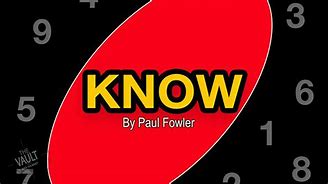
know - Image

know - Image
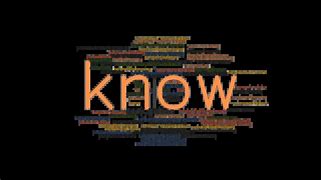
know - Image

know - Image
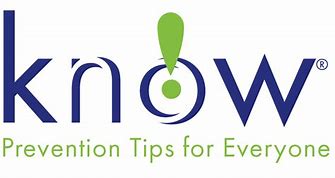
know - Image
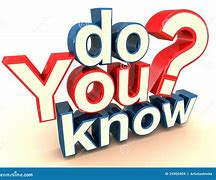
know - Image

know - Image
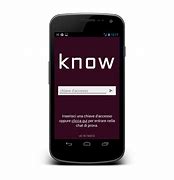
know - Image

know - Image
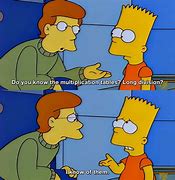
know - Image
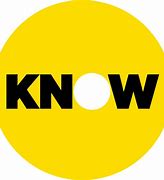
know - Image

know - Image
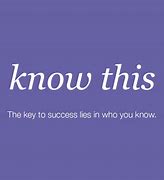
know - Image
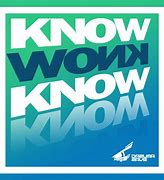
know - Image

know - Image

know - Image
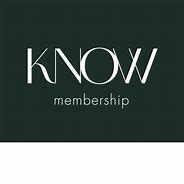
know - Image
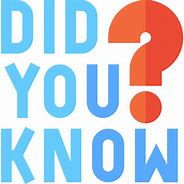
know - Image
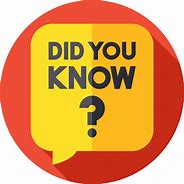
know - Image
| Word | gb | |
| Word | us |